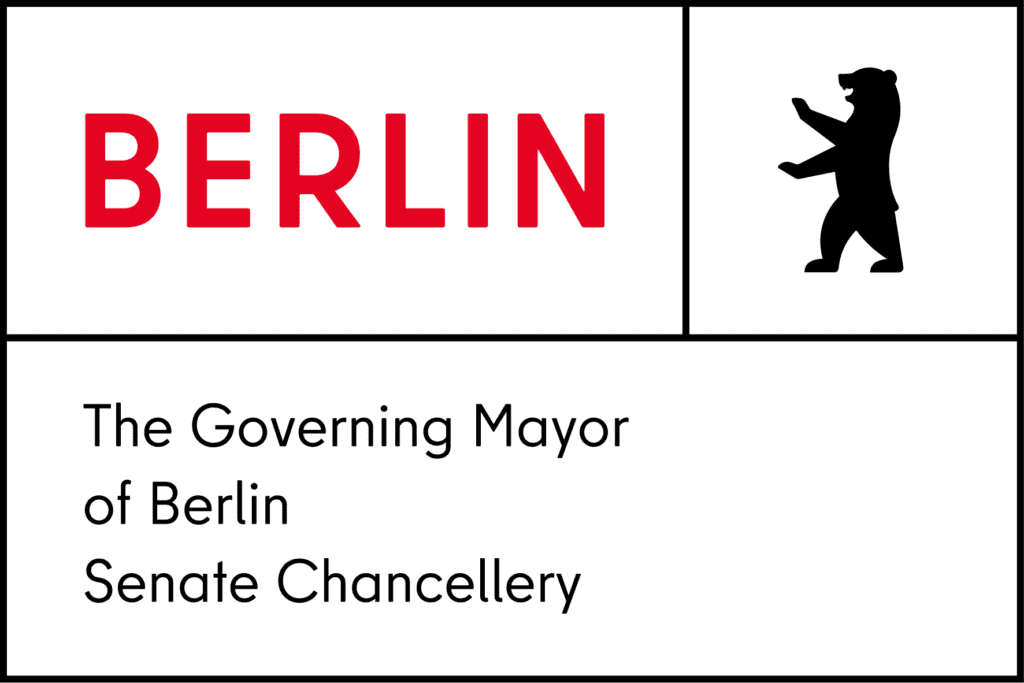Our cities and our world are constantly changing – especially in the area of digitalization. So if a strategy is introduced in 2023, how do we ensure that it is still up-to-date one or more years after it has been decided? In response to this question, Gemeinsam Digital: Berlin (GD:B for short) – Berlin’s smart city and digital strategy – has been designed as a learning strategy. In concrete terms, this means that experiences from strategy implementation are regularly shared and a learning process has been initiated to ensure that GD:B can respond to current developments and thus remain relevant in the future.
The GD:B annual conference on September 29, 2023, at the Red City Hall was an important kick-off for this. With a focus on collaboration between different stakeholder groups in the smart city, the conference brought together more than 130 people from administration, science, business and civil society. The GD:B annual conference was not a conference in the usual sense, but a participatory conference where participants could work together to produce results. This offered the opportunity to bring together a variety of perspectives from Berlin’s urban society and to engage them in exchange. Thus, the GD:B strategy continues the broad approach to participation that was already implemented in the strategy development.
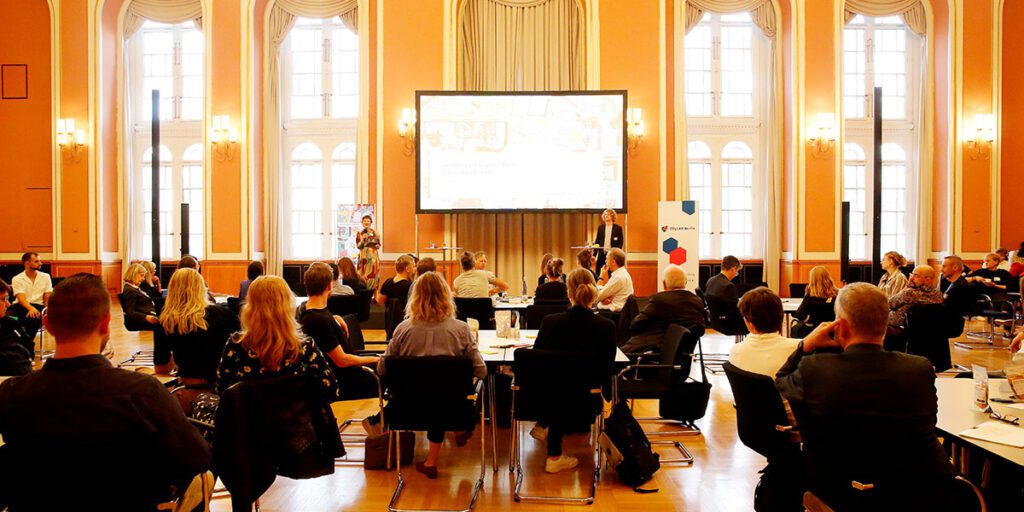
Group work under the chandeliers of the Rotes Rathaus
The conference was opened by Berlin’s Chief Digital Officer Martina Klement with a welcoming address. Renate Mitterhuber, Head of Division at the Federal Ministry of Housing, Urban Development and Construction, then gave a keynote speech. In the joint discussion, both emphasized that Berlin, as the federal capital and as a participating municipality in the federal funding program Model Projects Smart Cities, is being looked at particularly closely. There is therefore great interest in Berlin’s smart city strategy and the processes from the strategy implementation.
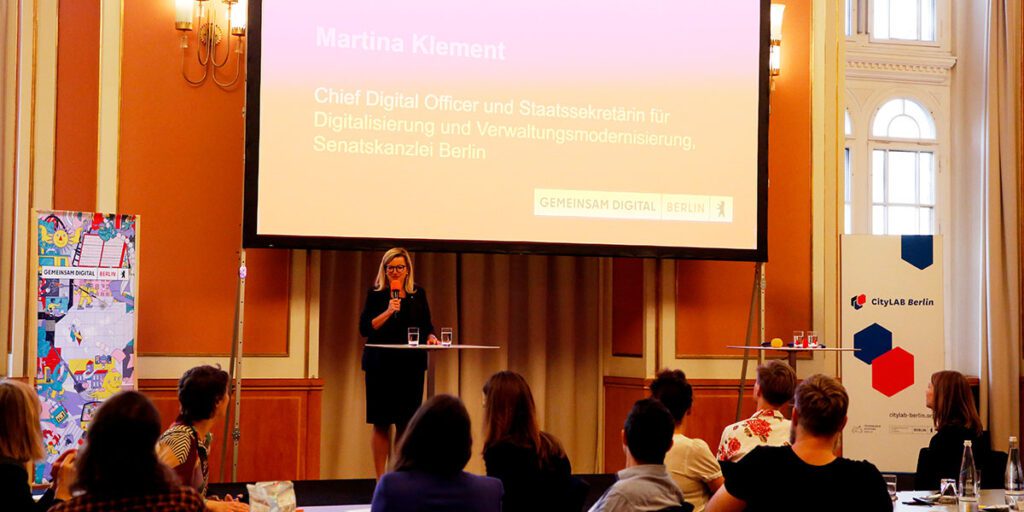
© Constanze Flamme
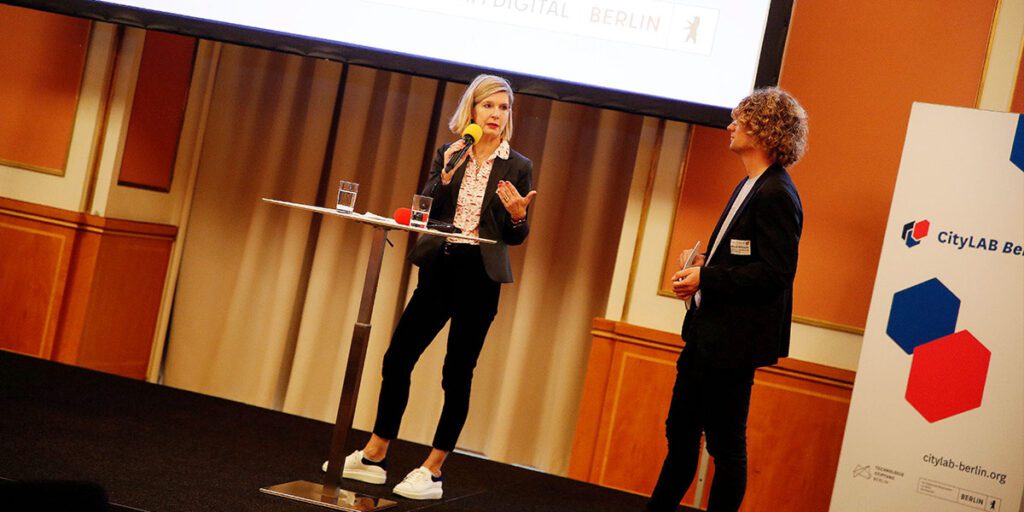
Afterwards, the work started directly in 18 small groups. Together, topics and problems were defined, which were then worked on in different groups. The participants received impulses from the areas of civil society, administration and business from Geraldine de Bastion from Konnektiv, Björn Unte from the Senate Department for Culture and Social Cohesion, Claudia Rathfux from the Smart City Network and Max von Grafenstein from the Alexander von Humboldt Institute for Internet and Society (HIIG).
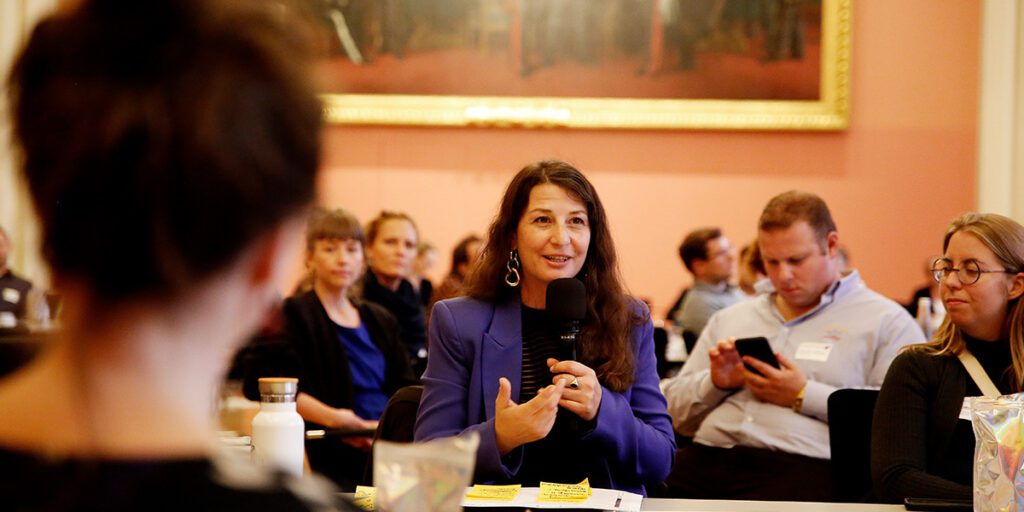
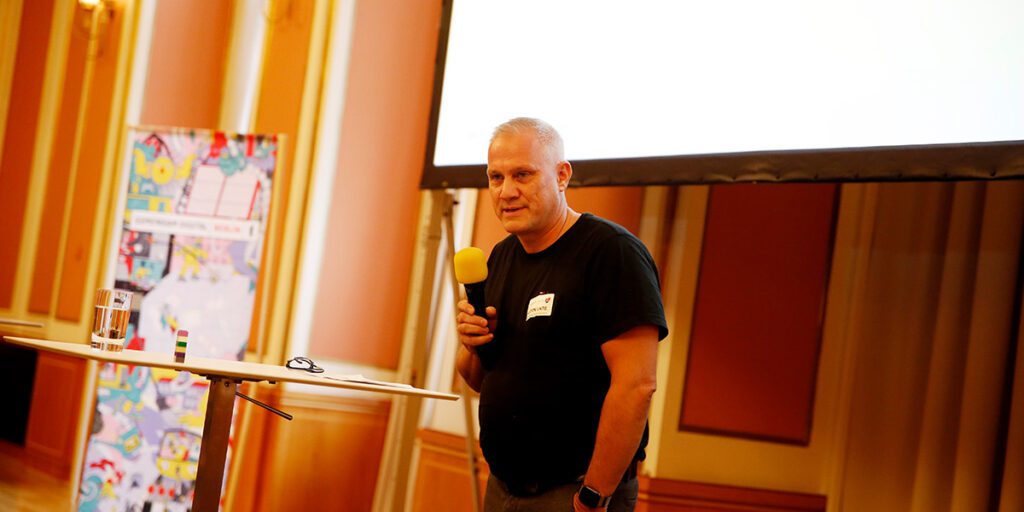
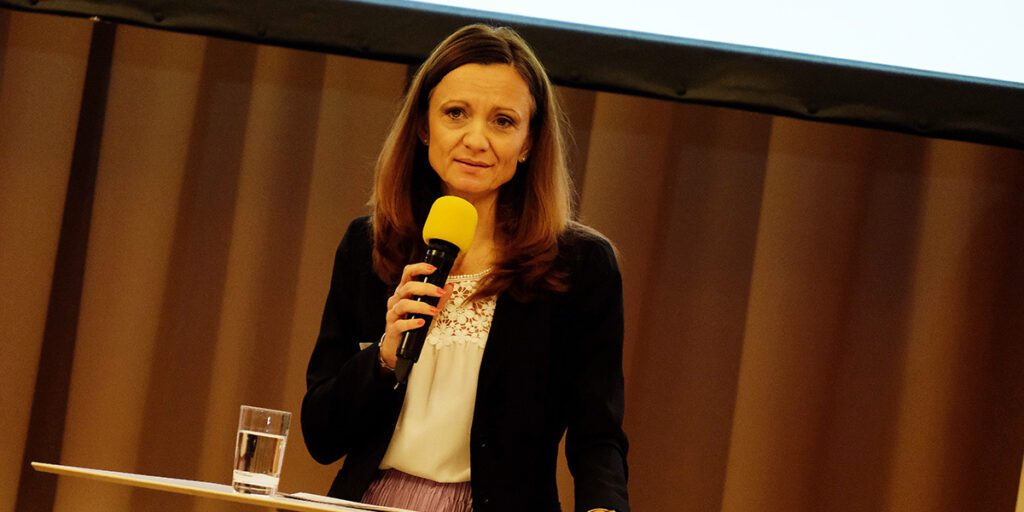
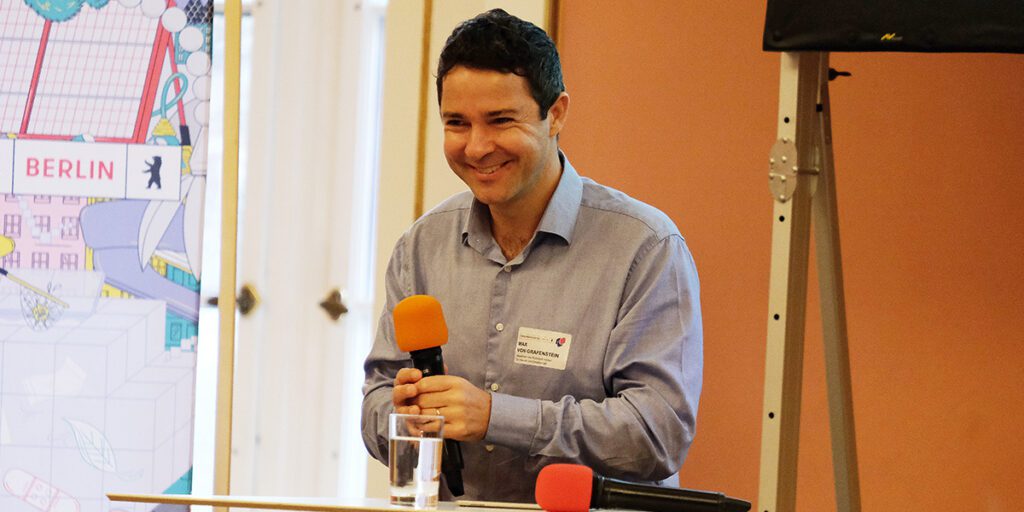
In several hours of intensive work, results were compiled in order to jointly tackle challenges in the Smart City.
Suggestions for better collaboration were many and varied. For example, they revolved around reviewing processes in order to make the procedures and structures of Berlin’s administration more efficient. A similar suggestion revolved around harnessing the power of digital transformation to drive cultural change in the administration. Another suggestion was to set up public experimentation spaces to strengthen the possibility to exchange knowledge and impulses between different actors of the urban society. These spaces could be distributed in different neighborhoods of Berlin. This was complemented by a proposal to develop playful formats to enable a change of perspective for parts of the urban society. Among other things, employees of the administration should take on the perspective of users of administrative services through workshop formats in order to be able to offer these services in a more tailored manner.
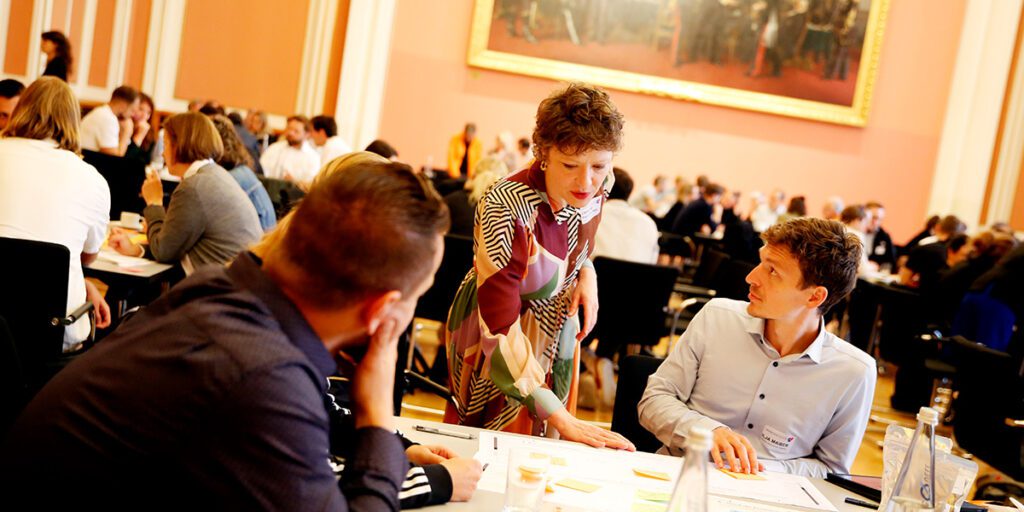
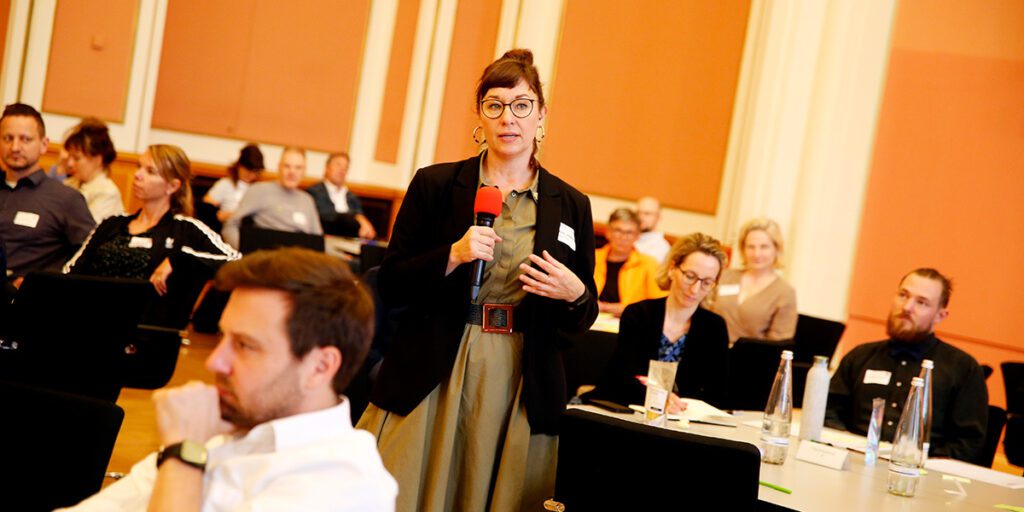
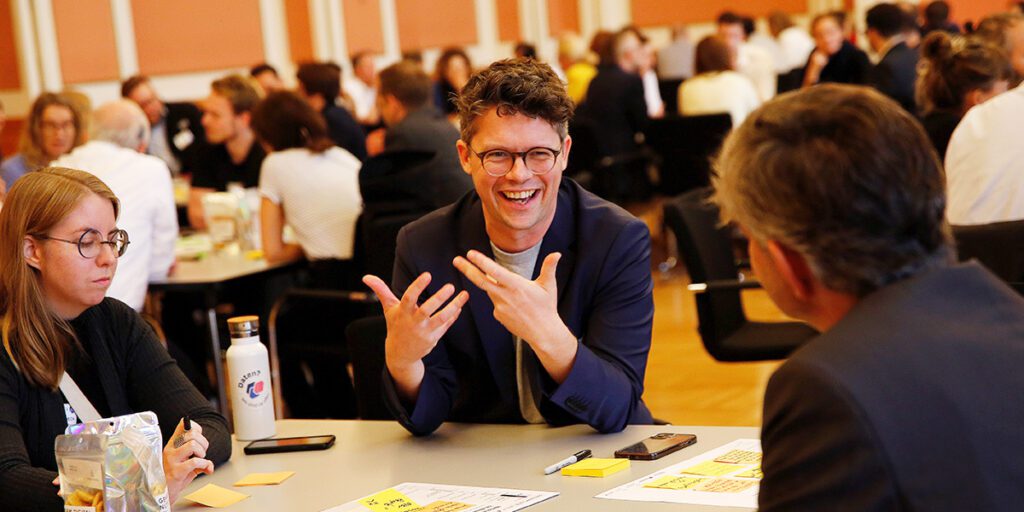
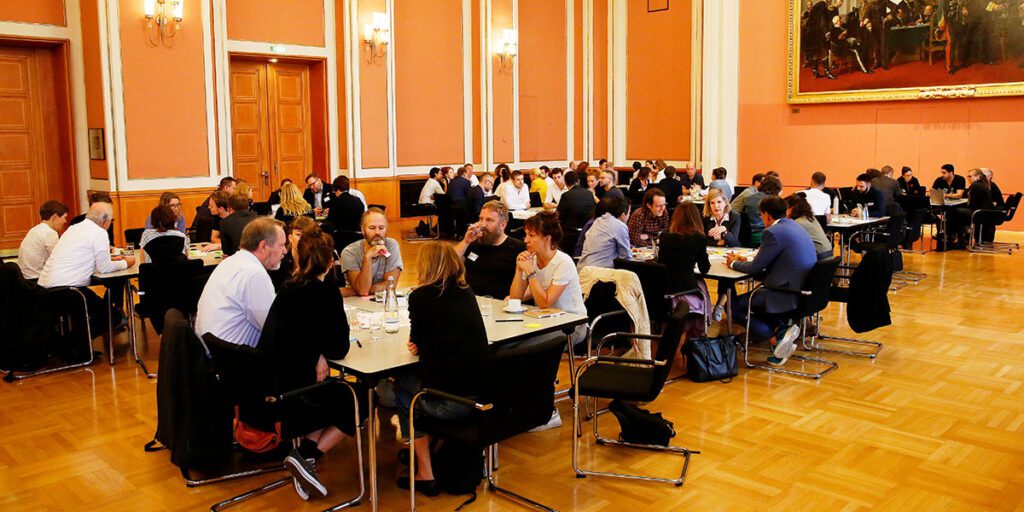
Ideas for the next 100 days
In addition, the participants were faced with the challenge of developing concrete ideas with the aim of implementing them in the next 100 days. Not an easy task – but some projects nevertheless emerged. A key focus was on fostering collaboration and participatory working in the administration. For many of those present, this included building collaborative tools, bringing in external experts, and continuing projects based on participation and co-development. Teams now receive back their developed results and are invited to check in together after 100 days to see what ideas could be implemented.
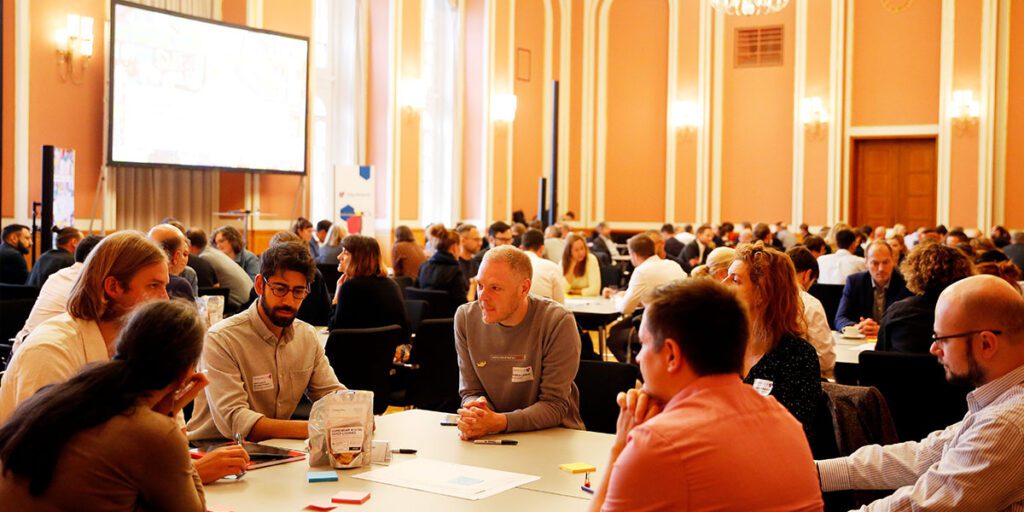
In addition, the teams of the individual topic tables emphasized the importance of networking and sharing experiences, both within the administration and with other cities and countries, in order to jointly identify best practices, valuable knowledge and suggestions for innovations and to use them for their own projects.
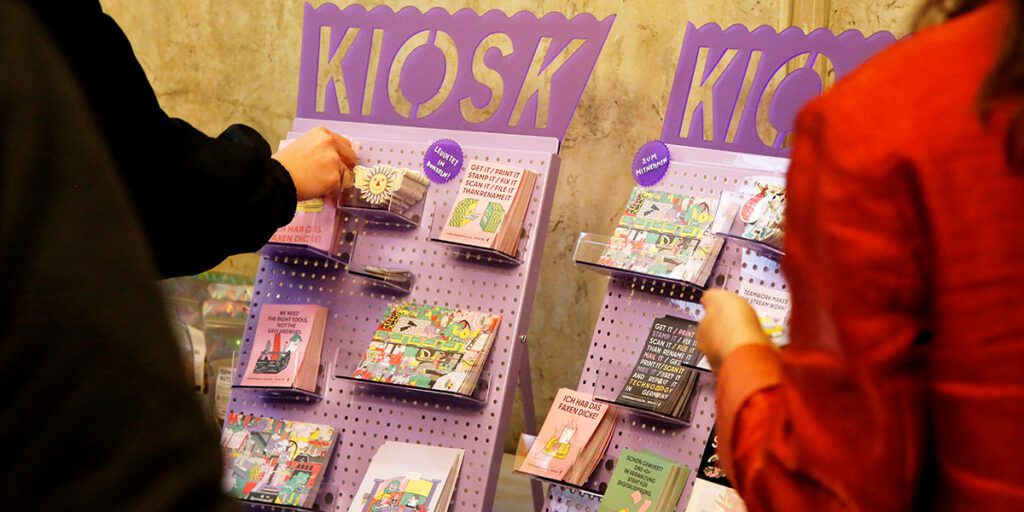
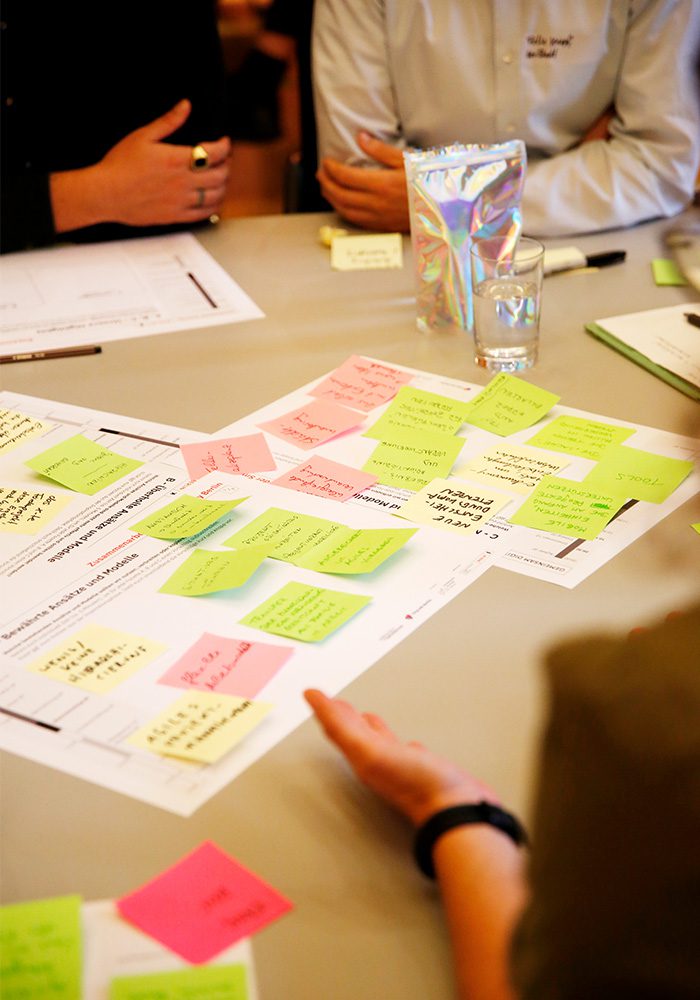
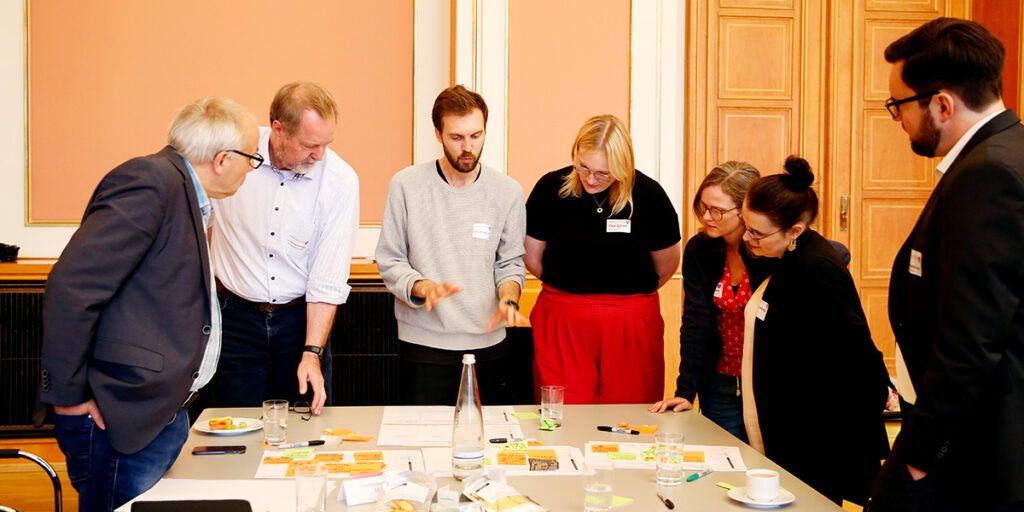
This is how it continues
The results of the annual conference are currently being processed and subsequently shared with the participants. In the next step, these will be incorporated into the step-by-step revision of the strategy to ensure continuous learning and connection to the urban society.
More information about the strategy Gemeinsam Digital: Berlin are here.
